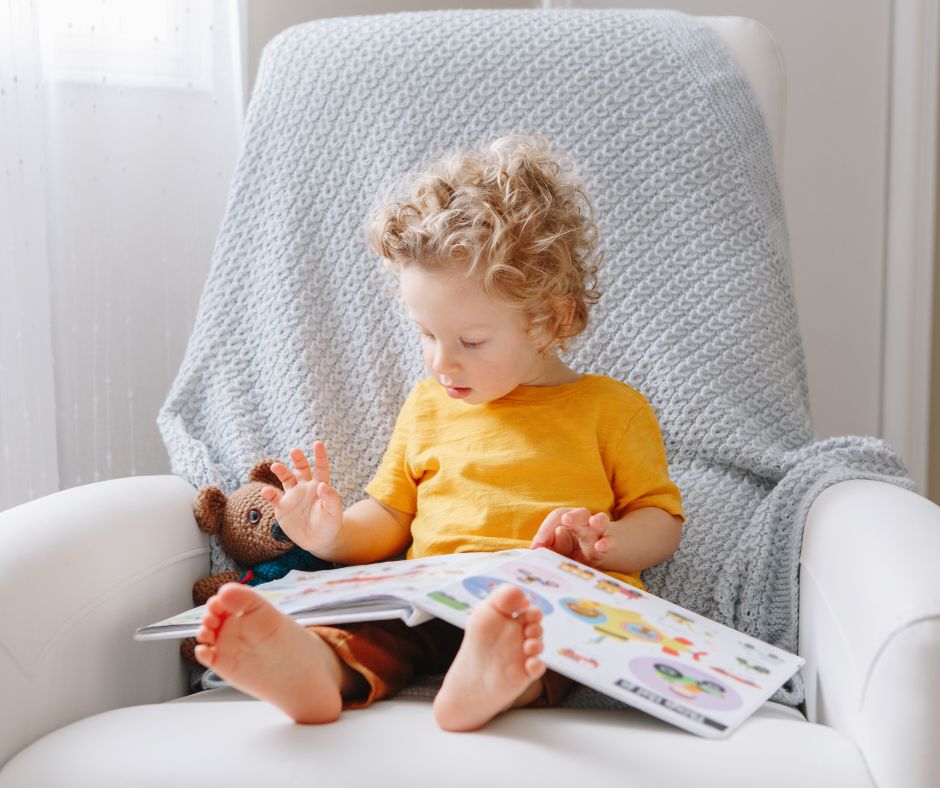Langhorne day care centers believe that engaging in outdoor activities is an essential component of early childhood educational programs. Their philosophy is grounded in the understanding that young children learn best through hands-on experiences and active exploration of their environment. By incorporating a variety of stimulating outdoor activities into our childcare curriculum, they aim to foster children’s physical, cognitive, social-emotional, and language development in a fun and natural way.
The Benefits of Outdoor Play in Langhorne Day Care Centers
Research has consistently shown that outdoor play offers numerous benefits for young children’s growth and development. When children engage in outdoor activities, they have opportunities to:
- Develop gross motor skills through running, climbing, jumping, and balancing
- Strengthen fine motor skills by manipulating natural materials like sand, water, leaves, and sticks
- Engage in imaginative and cooperative play with peers
- Develop problem-solving abilities and critical thinking as they navigate outdoor challenges
- Enhance sensory awareness by interacting with diverse textures, sounds, and visual stimuli in nature
- Build stamina, strength, and coordination through active movement
- Practice turn-taking, sharing, and communication skills during group activities
- Gain a greater appreciation and understanding of the natural world
At our Langhorne day care center, we intentionally plan outdoor experiences that maximize these benefits and align with children’s developmental needs and interests.
Daycare Langhorne: Outdoor Fun Learning Environment
Daycare providers at Langhorne PA have spacious, well-equipped outdoor areas that serve as an extension of their indoor classrooms. Most centers have outdoor learning areas that have a secure environment and typically include:
- A large, open grassy area for running, ball play, and group games
- Shaded areas with picnic tables for outdoor meals, snacks, and art activities
- Sand areas with toys for digging, pouring, shaping, and building
- Water play station with funnels, tubes, buckets, and a working pump for filling up buckets and watering cans
- Music and movement area with a stage, scarves, ribbons, and instruments
- Construction zone with blocks, tubes, tires, and crates for building and dramatic play
- Gardens where children can plant tend, and harvest flowers and vegetables
- Stationary and portable climbing structures to support gross motor development
- Tricycles and scooters on a bike path to build balance and coordination skills
Key Outdoor Activities in Quality Care Program
Nature Scavenger Hunts
Outdoor Art
Gardening
Water Play
Building Projects
Messy Play
Group Games
Nature Walks
Picnics and Outdoor Eating
Music and Movement
Using their outdoor stage and musical instruments, children put on impromptu performances, practice dances learned in class, and create their own musical compositions. This builds confidence, creative expression, and rhythmic awareness.
Integrating Outdoor Activities Across the Curriculum
Encouraging Outdoor Play at Home
- Visit local parks, nature centers, and hiking trails to explore different outdoor environments
- Collect natural items to examine, sort, and use in art projects
- Plant a small garden or container garden to care for at home
- Take neighborhood walks to observe seasonal changes
- Have outdoor picnics and active family game times
- Provide simple outdoor toy equipment like balls, chalk, bubbles, and digging tools
- Allow ample time for unstructured, child-led outdoor play without screen distractions
- By reinforcing children's outdoor learning experiences, families can multiply the cognitive, physical, and social-emotional benefits
The Lasting Impact of Outdoor Play
- Engage in regular outdoor exercise to support physical health and fitness
- Develop a sense of environmental stewardship and sustainable practices
- Use outdoor spaces as a source of relaxation, rejuvenation, and stress-relief
- Participate in outdoor recreational activities and appreciate nature as a leisure pursuit
- Feel connected to local ecosystems and motivated to protect natural resources
- Actively seek out outdoor learning to satisfy curiosity about how the world works
Conclusion
At Langhorne day care centers, outdoor activities are not just an entertaining break from indoor routines, but an intentional and integral part of the early education approach. Through thoughtfully planned outdoor experiences that engage the whole child, they aim to inspire a lifelong passion for nature, activity, discovery, and stewardship.
Children Central, as the reliable Langhorne day care invites you to visit its spacious outdoor learning environment and see for yourself how joyful, stimulating, and enriching outdoor play can be for children’s development.
Frequently Asked Questions
Langhorne day care centers prioritize outdoor activities because they believe young children learn best through hands-on daycare experiences and active exploration. Engaging in outdoor play offers numerous benefits for children’s physical, cognitive, social-emotional, and language development. By incorporating stimulating outdoor activities into their curriculum, they aim to foster these areas of growth in a fun and natural way.
Langhorne day care has a spacious, well-equipped outdoor learning environment that includes a large grassy area, shaded picnic tables, sand and water play stations, a music and movement area, a construction zone, a garden, a nature trail, and climbing structures. They also have a bike path with tricycles and scooters for building balance and coordination skills. This diverse outdoor space allows children to choose educational activities based on their interests and developmental needs.
Our awesome teachers at Langhorne PA childcare centers integrate outdoor learning across the curriculum by connecting outdoor experiences to multiple subject areas. They might read books outdoors, count and sort natural objects for math, observe weather and wildlife for science, take on community roles in outdoor dramatic play for social studies, and use natural materials for art projects. This integrated approach helps children see connections between learning domains and apply academic skills in authentic contexts.
Early exposure to engaging in outdoor fun activities can have lasting positive impacts on children’s physical health, environmental stewardship, stress management, and appreciation for nature. When children develop comfort and enthusiasm for exploring the natural world, they are more likely to seek out outdoor recreation, use nature as a source of relaxation, feel connected to local ecosystems, and actively protect natural resources as they grow older. Our quality langhorne day care facility views its outdoor childhood education approach as an investment in children’s lifelong well-being and civic engagement.



